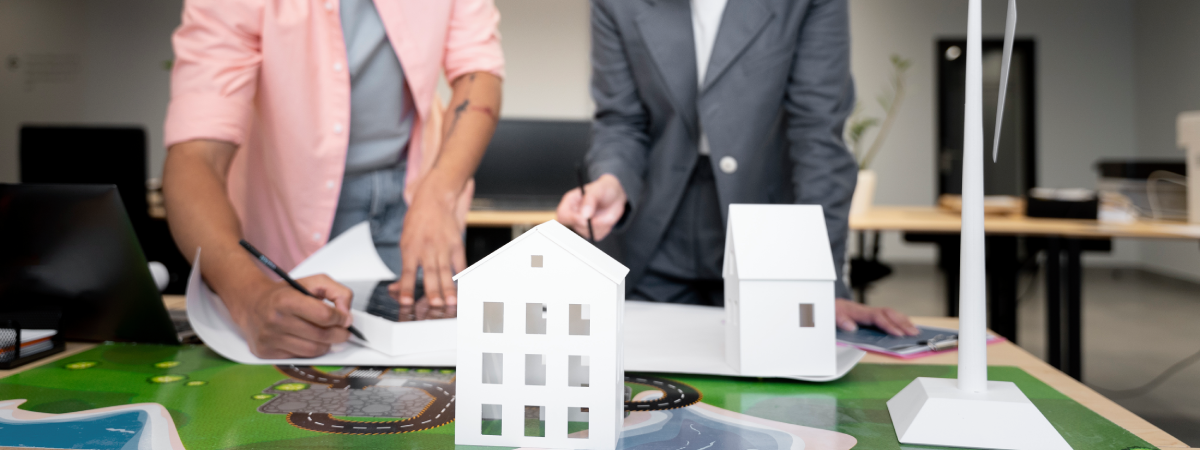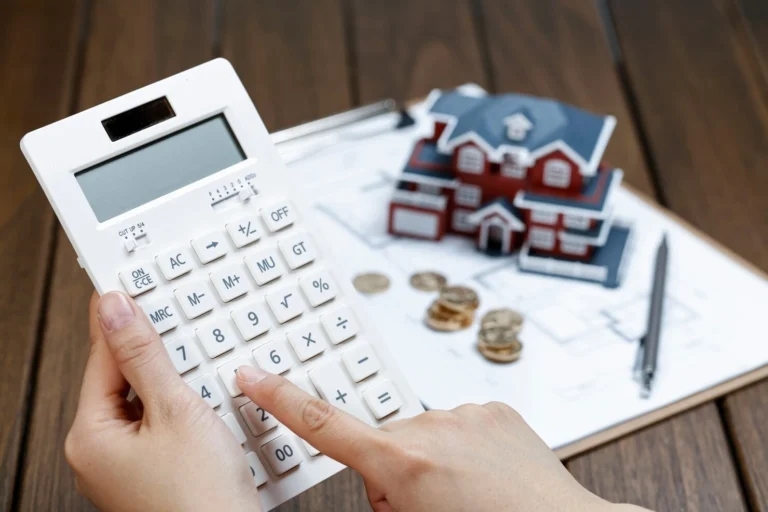A question will always arise in your mind: What makes a good real estate investment profitable and sustainable? Or how to get into real estate to invest in good properties? Furthermore, a good investment has a high chance of success and provides a solid return on your real estate investment. Likewise, one of the most crucial factors in favor of real estate property investing is the relatively small push required to get started compared to investing in several other assets.
Moreover, a home mortgage typically needs at least 5% in the United Kingdom. Nevertheless, the amount can vary depending on the buyer’s situation and the property’s sale value. Hence, extensive home deposits, which are typically considered between 10%, 15%, or even 20%, are often recommended, resulting in better mortgage rates. For example, a 5% down payment on a £300,000 residential or commercial property would be £15,000.
Anyway, that is great for those who have potential skills and plenty of spare time, but it is only one of the best way to start investing in real estate without a significant upfront investment. Moreover, in this comprehensive blog, we will discuss all the fruitful ways to invest in properties in the UK.
Why Invest in Property in Real Estate?
There are countless reasons why individuals should invest in properties. Let’s check them out one by one:
- Rental Income: Investing in property is one of the most effective ways to generate a steady monthly income.
- Capital Growth: As we all know, house prices fluctuate all the time, and the value of your investment could increase significantly over a short time.
- Helping Family Members: According to research, the moderated first-time investor deposit in 2024 was £61,090. Likewise, many family members and parents are searching for the best way to start investing to help their children buy their own homes.
- It is Easy to understand: Some individuals feel great and happier after investing in properties because they are aware of how they work and how profitable they can be.
Best Ways to Invest in Properties in the UK
Investing in commercial or residential real estate properties can be a lucrative way to generate a reliable source of income, and you may also get significant benefits from substantial increases in their value over time. But the question is, how does it cost? How to start investing? What are the different ways to invest in property? Furthermore, let’s discuss some of the best ways to invest in properties in the UK.
1. Rental Properties
Owning rental properties is an excellent option for individuals who have DIY (do-it-yourself) skills, the time to do the job correctly, and the patience to handle tenants. However, financing can be acquired with a relatively low down payment. It requires a significant amount of cash on hand to cover upfront maintenance costs and periods when tenants do not pay their rent or the property is vacant.
Furthermore, it is one of the most reliable and effective ways to consider how to get into real estate. On the bright side, once the rental property starts generating income, it can be leveraged to obtain several other properties. Slowly, the investor can receive multiple income streams from various properties, neutralizing the unexpected costs and losses with income.
2. Real Estate Investment Groups (REIGs)
REIGs (rental estate investment groups) are exceptional for individuals with capital who want to own rental real estate without the annoyance of hands-on management. REIGs are a pooled investment from multiple property investors, identical to a small mutual fund, that is invested in rental properties. In a standard real estate investment group, a company builds or buys a set of apartment condos or blocks.
Furthermore, a single investor can own multiple units of self-contained residence space. Still, the company operating the property investment group collectively handles all units, including advertising vacancies, interviewing renters, and managing maintenance. In exchange for performing these management tasks, the company takes a percentage of the monthly rent.
3. House Flipping
House flipping is the best way to start investing. It is suitable for individuals with extensive experience in real estate valuation, renovation, and marketing. It is the other side of the real estate investing world. Just as day trading is different from buy-and-hold investing in properties, real estate flippers are different from buy-and-rent landlords. Real estate house flippers often aim to profitably sell the undervalued real estate properties they buy within six months.
However, some property flippers do not invest in enhancing properties. They only pick properties they hope have the inherent value needed to turn a profit without any renovations or alterations. Moreover, there is another type of property investor who makes money by purchasing reasonably priced properties and adding value through innovations. Hence, it is considered a long-term investment, and investors might only be able to take on a maximum of two properties at a time.
4. Real Estate Investment Trusts (REITs)
A REIT (Real Estate Investment Trust) is the most effective step for investors seeking portfolio exposure to real estate without undertaking a classic real estate transaction. A REIT is established when a trust or corporation utilizes investors’ money to buy and operate income properties. A Real Estate Investment Trust is bought and sold on extensive property deals, like any other stock. A firm must pay out 90% of its taxable profits in dividends to keep its REIT status. Therefore, by doing this, REITs avoid paying corporate income tax. In contrast, other organizations are taxed on profits and then make an informed decision whether and how to distribute after-tax earnings as dividends.
Moreover, when searching for the best REITs, investors should differentiate between equity REITs, which own buildings, and mortgage REITs, which provide financing for real estate properties and might also invest in mortgage-backed securities (MBS). Both offer bright exposure to real estate, but the nature of the exposure may differ from your existing knowledge. An equity REIT represents ownership in real estate investment properties, whereas a mortgage REIT focuses on the income generated from mortgage financing.
5. Online Real Estate Platforms
Real estate investing in property platforms is for those who want to connect with others in investing in relatively large residential or commercial deals. The property investment is made through online real estate investing platforms, also known as real estate crowdfunding.
Likewise, the best real estate crowdfunding investing platforms pool the crucial resources of investors searching for great opportunities with other investors seeking financial backing for real estate projects. It is one of the significant reasons that provides investors with a golden opportunity to diversify into real estate without a substantial stake.
How Much Do You Need to Invest in Property in the UK?
There are several expenses to take into account if you’re thinking about purchasing a buy-to-let property in the UK:
1. Deposit
If you are investing in a property to rent out, you will typically require a Buy-to-Let mortgage unless you are a cash buyer. Typically, obtaining a buy-to-let mortgage requires a minimum deposit of at least 25%. Therefore, a deposit of at least £75,000 would be needed for a property valued at £300,000.
2. Stamp Duty
In England, you must pay the Additional Stamp Duty Rate if you are purchasing a property valued at more than £40,000, and the purchase will result in you owning multiple properties. The stamp duty rate for additional properties is 5% higher than the standard rate as of October 31, 2024. For instance, your stamp duty bill will be £2,500 if you are purchasing a £300,000 home that will be your only property. However, you will have to pay the Additional Stamp Duty Rate if you are buying a second property as an investment, which will increase your stamp duty bill to £17,500.
3. Conveyancing Fees
To manage the legal aspects of purchasing your investment property, you will require a conveyancing solicitor.
4. Surveys
It is one of the best ways to ensure you are aware of the property’s condition before making a purchase. We always recommend having a study completed. The last thing you want is for your real estate investment to become a money pit, but it may save you from unpleasant and expensive surprises later on. A RICS Level 2 Survey for a £300,000 home could cost between £600 and £700, though prices vary.
5. Having a Safety Net for Your Finances
If your property remains vacant for a long period, it is also advisable to have funds set aside to cover maintenance and mortgage payments.
It’s Time to Wrap Things Up!
Whether real estate investors use their commercial or residential properties to generate rental income or to bide their time until the best way to start investing opportunity arises, it is possible to build a strong investment program by paying a relatively small part of a property’s total value upfront. Nevertheless, if you are new to real estate property investment and need professional assistance to get imperative tips and tricks, look no further than Eggs Invest. We have an extensive team of skilled and experienced professionals who will guide you in every step of your investment phase. Connect with us today and get precise information about real estate investment techniques and processes.








Hey amigos, xbetsmx popped up on my radar. Threw a few pesos their way and had a decent experience. Nothing groundbreaking, but solid enough. Give it a look-see if you’re feeling lucky. More info here: xbetsmx
Downloaded the BK999gameapk. Installation was easy. Game seems alright so far. Gonna try my luck and see what’s what! Download it from bk999gameapk.
Just giving a shoutout to pak777pkgame! Gave it a try last night and ended up playing way longer than I should have. Decent site, easy to navigate. See for yourself pak777pkgame.
Yo, y4444game is where it’s at. Good selection and always a good time. Spread the word. Game on at y4444game